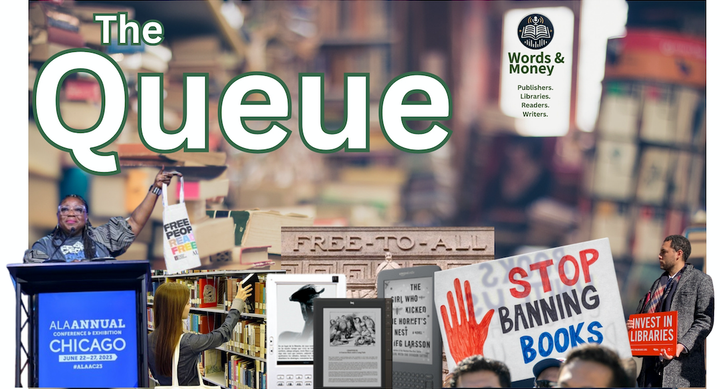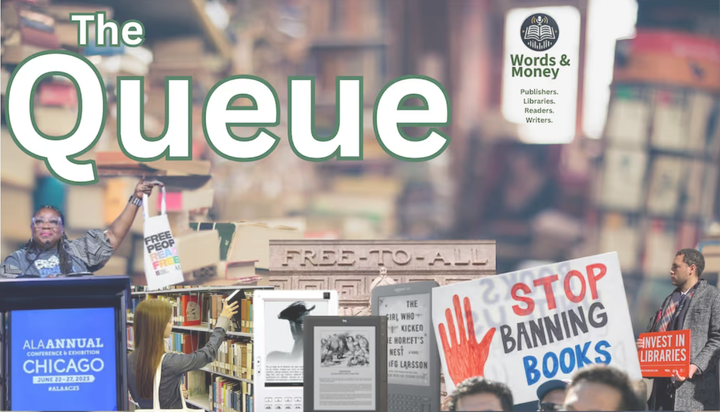PEN America Report Finds the Battle Over Book Bans Has Entered an Alarming New Phase
“For many students, families, educators, librarians, and school districts, book banning is a new normal,” the report, 'Banned in the USA 2024-2025: The Normalization of Book Banning,' concludes.

Ahead of Banned Books Week 2025, PEN America this week released its latest report documenting public school book bans over the 2024-2025 school year. And while the topline number of challenges went down, the report, Banned in the USA 2024-2025: The Normalization of Book Banning, concludes that—more than four years into a politically organized right wing attack on the freedom to read—book banning efforts have in fact “expanded and escalated” with the decline in this year's numbers owing to a worrying “normalization” that has settled in around censorship in schools.

Between July 2024 and June 2025, PEN America counted 6,870 instances of book bans across 23 states and 87 public school districts. That’s down from the 2023-2024 school year, which found 10,046 instances of individual book bans, but still significantly higher than the 1,586 bans counted in the 2021-2022 school year for PEN America’s first Banned in the USA report.
For the third straight year, Florida topped the list with 2,304 bans followed by Texas (1,781) and Tennessee (1,622).
All in, PEN America has counted nearly 23,000 book bans across 45 states and 451 public school districts since 2021.
"For many students, families, educators, librarians, and school districts, book banning is a new normal,” the report states. “This change didn’t happen overnight, and it wasn’t a fluke of history. National and local groups touting extreme conservative views have played on parents’ fears and anxieties to exert ideological control over public education across the United States using consistent and coordinated tactics… As a result of these groups and their political allies, book censorship in schools has reached a new apex, now a routine and expected part of school operations."
The report points out several key trends in the 2024-2025 school year, including expanded federal efforts under the Trump administration. But one factor has remained consistent over the last four years: Fear.
“Many of these book bans are not due to decisions made in reconsideration policies and processes,” the report states. “PEN America identified 2,520 book ban cases where the bans were influenced by pressure imposed from the presence or threat of state laws. Out of those, however, only 3% of the bans were triggered by a law requiring the removal of a book—the rest, 97%—came from bans caused by the fear that districts had of being out of compliance, regardless of whether the law was enjoined, hadn’t been passed yet, or didn’t call for the direct removal of books.”
Beyond the numbers, this year’s report suggests a worsening climate of censorship.
“From a birds’ eye view, school districts today are surrounded by multiple and persistent local, state, and now federal pressures to ban books, with diminishing reasons not to,” the report states. “The result is a kind of everyday banning—the normalization and routinization of censorship as an expected part of public education in many parts of the country. Opposing this will no longer take just counter-efforts to any one of these threats; it will require a similarly committed effort, rooted in recognition of the fundamental right to read.”
Furthermore, book bans are “a bellwether” the report concludes, as censorship efforts spread beyond schools and library shelves.
“Book fairs, book donations, and even scholarships aimed at supporting public education have been challenged,” the report finds. “Textbooks and curricula are also being challenged for many of the same topics that have been targeted for banning.”
It’s not about the censorship of any one book, the authors explain, “it’s about total control of the story.”
In a release announcing the report, PEN America officials compared the climate today to that of the “Red Scare” of the 1950, and warned that "no bookshelf will be left untouched" if local and state officials continue their efforts to dictate what students can read in schools.
“With the Trump White House now also driving a clear culture of censorship, our core principles of free speech, open inquiry, and access to diverse and inclusive books are severely at risk,” said Sabrina Baêta, senior manager of PEN America’s Freedom to Read program.



